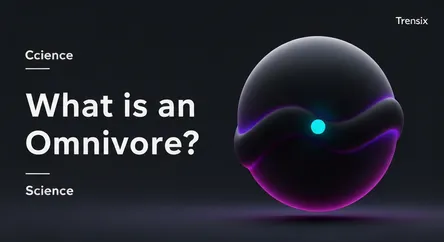Science
What is an Omnivore?

An explanation of omnivores, animals that eat both plants and other animals, and what this dietary classification means for humans.
What is it?
An omnivore is an animal that has the ability to eat and survive on both plant and animal matter. The term comes from the Latin words omni, meaning "all," and vorare, meaning "to devour." Unlike herbivores (plant-eaters) or carnivores (meat-eaters), omnivores have a flexible diet that allows them to obtain energy and nutrients from diverse food sources. This adaptability is often reflected in their physical traits; for example, many omnivores have a combination of sharp teeth for tearing meat and flat molars for grinding plants. Common examples of omnivores include bears, raccoons, pigs, and humans. They play a crucial role in ecosystems by occupying various levels of the food chain, helping to control both animal populations and vegetation growth.
Why is it trending?
The concept of the omnivore is continually relevant due to ongoing public conversations and debates about human diet and health. With the rise of dietary movements like veganism, vegetarianism, and carnivore diets, there is intense interest in what constitutes a "natural" or "optimal" human diet. This sparks discussions about whether humans evolved to be omnivores and the physiological evidence that supports this, such as our versatile teeth and digestive system. The term also trends in the context of health and nutrition, as people explore balanced omnivorous diets, like the "flexitarian" approach, which emphasizes plant-based foods while still including animal products in moderation.
How does it affect people?
Understanding the omnivorous nature of humans directly impacts personal health, dietary choices, and ethical considerations. For individuals, an omnivorous diet offers a wide variety of foods, making it easier to obtain all essential nutrients, such as vitamin B12, iron, and a complete range of amino acids, which can be more challenging on a restricted diet. It informs nutritional guidelines that recommend a balanced intake from all food groups. This classification also frames ethical debates about consuming animal products, encouraging many to consider the environmental and moral implications of their food choices. Ultimately, recognizing humans as omnivores provides a scientific basis for dietary flexibility, allowing for a wide spectrum of healthy eating patterns that can be tailored to individual health needs and personal values.